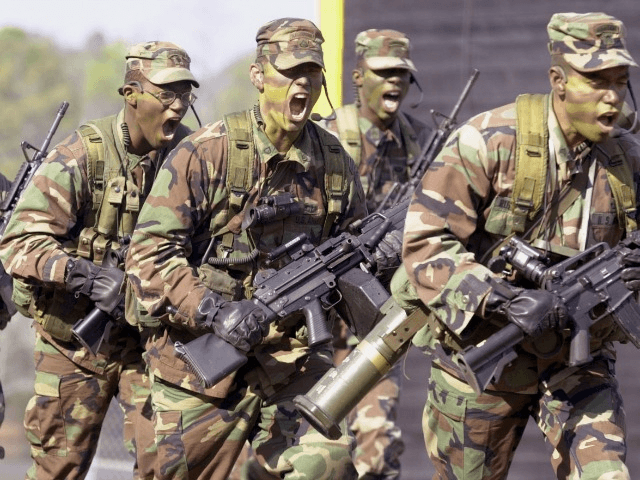U.S. President Donald Trump’s Afghanistan war plan is expected to include an increase in the number of American troops fighting terrorists in the country, prompting some analysts to suggest the “new strategy” is only an extension of the failed status quo.
Taking the pulse of Trump’s Afghanistan strategy among Washington’s mainstream media, Mike Allen, the co-founder of both Politico and Axios media, determined that the war will remain a stalemate under the president’s plan.
“The plan will have the U.S. not winning, but not losing,” he wrote.
U.S. Gen. John Nicholson, the top commander of American and NATO forces in Afghanistan, told Congress in February that the coalition has been facing a “stalemate” in the war-ravaged country for years.
Echoing the top U.S. general, the Special Inspector General for Afghanistan Reconstruction (SIGAR), an American watchdog agency, at the end of last month also described the current situation in the war-ravaged country as a “stalemate.”
Citing the U.S. forces in Afghanistan, SIGAR noted that “as of May 15, 2017, the struggle between the Afghan government and insurgents remains a stalemate.”
The United States has been fighting the war in Afghanistan since October 2001 at a significant cost of blood and treasure — an estimated $714 billion as well as 2,257 U.S. service members killed and 20,257 others injured.
Despite the U.S. taxpayer investment in Afghanistan over nearly 16 years, the Taliban is stronger, al-Qaeda continues to operate in the country, and the Islamic State (ISIS/ISIL) has established a presence.
Security conditions significantly deteriorated after former President Barack Obama declared the U.S. combat mission in Afghanistan over at the end of 2014, a move that fueled a Taliban resurgence.
U.S. Secretary of Defense James Mattis has indicated that President Trump’s strategy will involve deploying more American service-members to Afghanistan—much like the initial steps taken by the former American commander-in-chief in response to the war, which has already outlasted two previous administrations.
The U.S. military has asked Trump for more troops to train and assist the Afghan security forces.
Allen quoted the New York Times (NYT) as saying Trump’s strategy “is likely to open the door to the deployment of several thousand troops.”
Trump, who advocated U.S. withdrawal before becoming president, is expected to announce his new strategy Monday night.
“Time to come home,” President Trump wrote on Twitter in 2012:
Why are we continuing to train these Afghanis who then shoot our soldiers in the back? Afghanistan is a complete waste. Time to come home!
— Donald J. Trump (@realDonaldTrump) August 21, 2012
Until this weekend, the president had rejected plans offered by Pentagon chief Mattis and National Security Adviser H.R. McMaster, which reportedly involve increasing the U.S. military footprint in Afghanistan.
“Trump has been reluctantly open to the generals’ opinion, and I’m told he doesn’t want to be the president who loses the country to the terrorists,” Allen quoted his colleague at Axios, Jonathan Swan, as saying.
Trump had demanded that his administration devise a plan that is different from the failed ones implemented by his predecessors.
However, critics of the few Trump strategy details that have surfaced so far argue that the plan appears to be an extension of the failed status quo.
According to NBC News, President Trump has expressed skepticism about whether the United States can win the war in Afghanistan.
Secretary Mattis has also explicitly acknowledged the United States is losing the conflict.

COMMENTS
Please let us know if you're having issues with commenting.